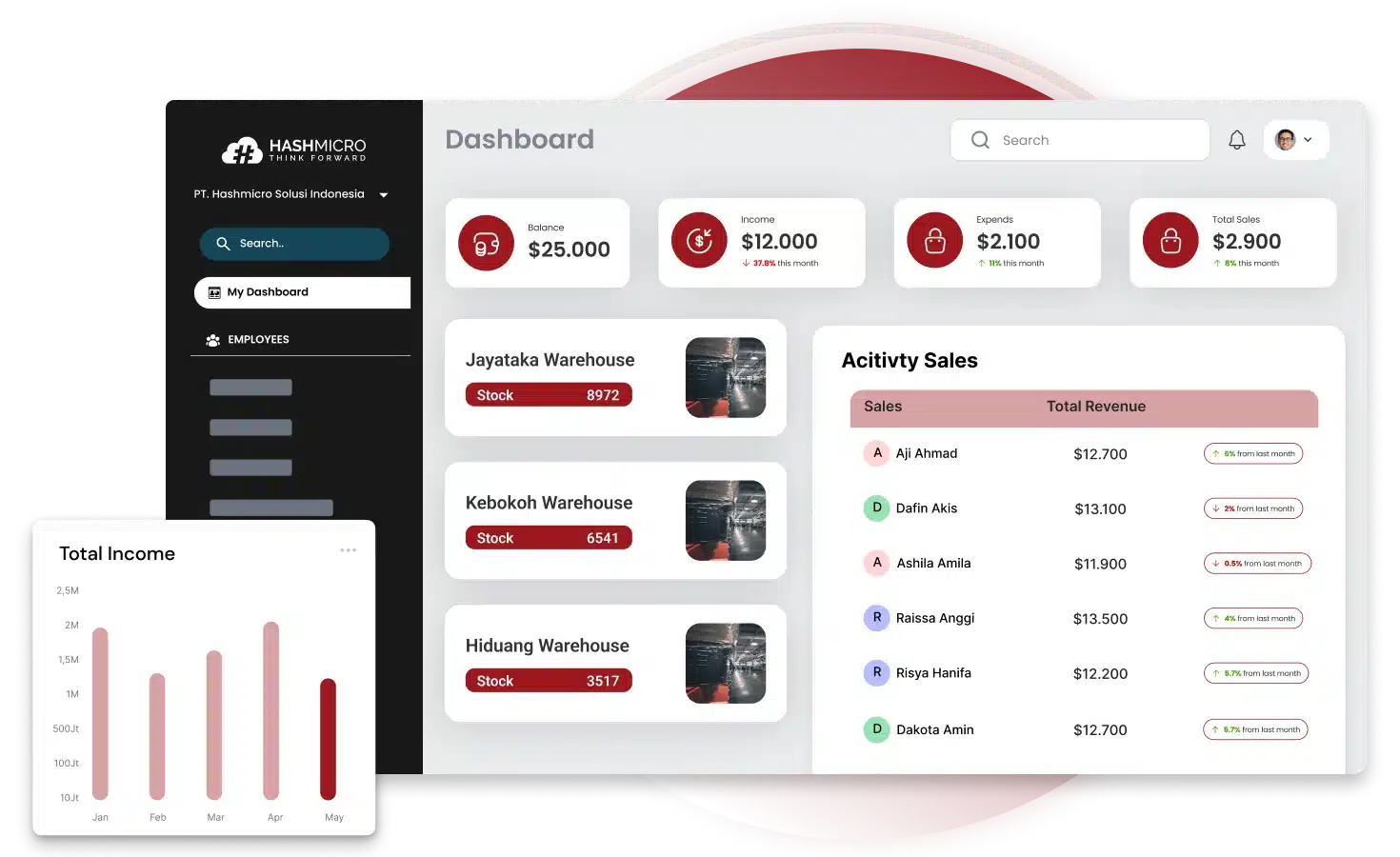Operation management is the process of overseeing, controlling, and improving business processes to produce goods or services efficiently. It aligns resources, such as manpower and technology, to ensure smooth day-to-day operations that meet customer demands.
Hay naku! Struggling with inconsistent workflows and operational delays can be a nightmare for any business. Accordingly, operation management helps companies streamline their processes, from managing supply chains to scheduling.
A study from the GSIS Butuan Branch highlights that efficient operation management and strong human resources and support systems boost performance and compliance with regulations. Therefore, effective operation management directly improves service quality and timeliness.
This article will help you understand what is operation management is, its importance, and how it works. We will also explore the different processes and how they contribute to optimizing supply chain management.
Key Takeaways
|
Table of Contents

What Is Operation Management?
Operation management is the process of overseeing, controlling, and improving the resources needed to produce goods and services efficiently. It focuses on optimizing business processes to improve performance and meet customer demands.
Proper operation management involves managing inventory and maintaining quality control throughout production. Additionally, an operation management example includes balancing these tasks to ensure businesses deliver products that meet customer expectations while minimizing delays or waste.
Moreover, it involves managing supply chains, inventory, and workflows, ensuring that each part of the business operates harmoniously. This is crucial for companies aiming to meet market demands and grow sustainably.
Why Is Operation Management Important for Businesses?
Understanding the operation management meaning is crucial to learning how it improves business efficiency and performance. Without effective management, businesses may face delays, increased expenses, or poor product quality.
Therefore, businesses must implement effective operations strategies to improve performance, stay competitive, and meet market demands. Below are the key benefits that highlight why operation management is important for businesses:
- Efficient resource management: It ensures that resources like labor, time, and materials are used efficiently. This helps reduce waste and maximize productivity, allowing businesses to save costs and improve overall performance.
- Cost reduction: Effective operations reduce unnecessary costs by streamlining processes and improving workflows. Additionally, they help businesses control production, inventory, and resource allocation expenses.
- Improved product quality: Strong quality control ensures that products consistently meet high standards through quality control measures. As a result, this leads to customer satisfaction and strengthens the business’s reputation.
- Timely deliveries: Operation management helps prevent delays through proper planning and coordination. Businesses can meet deadlines and maintain customer trust by ensuring that work-in-process and supply chains run smoothly.
- Competitive advantage: Businesses that effectively manage their operations are better positioned to compete in the market. Consequently, this strategy helps them innovate, adapt to changes, and consistently deliver customer value.
What Are the Main Functions?
Effective management of business operations includes various functions that work together to ensure operational productivity and efficiency. Below are the main function operations that contribute to the success and growth of a company:
- Budgeting
- Planning
- Process analysis
- Financial oversight
- Risk management
- Data privacy and security
- Quality assurance
- Preparing and disseminating reports
- Scheduling staff
- Providing technical support
- Managing equipment and supplies
- Controlling inventory
- Overseeing external vendors
Types of Operation Management
The management of business operations can be categorized into three main types: objectives management, task management, and individual supervision. Consequently, these approaches ensure that all business processes run efficiently.
- Objectives management: This focuses on setting clear goals for the entire company. Moreover, it ensures that all departments and teams work toward common objectives, aligning resources and efforts to achieve business success.
- Task management: Task management involves overseeing specific tasks or projects to ensure they are completed on time and within budget. This approach helps streamline workflows and boosts productivity by ensuring each task is clearly defined and managed effectively.
- Individual supervision: This type of management focuses on monitoring and guiding individual employees to ensure they perform their roles effectively. By providing guidance and support, businesses can maintain high performance and accountability across all levels of the organization.
In addition to types of operation management, there are three main categories of modern business management: centralized, decentralized, and hybrid. These categories offer control and flexibility tailored to meet the business’s needs.
- Centralized: In this model, all major decisions and processes are controlled from a central hub or headquarters. This structure ensures uniformity and tight oversight, allowing companies to maintain consistent standards across all operations.
- Decentralized: This approach spreads decision-making across multiple locations or departments. It gives teams the autonomy to make quicker decisions based on local conditions, leading to improved responsiveness and adaptability in dynamic markets.
- Hybrid: Hybrid operations are a flexible combination of centralized and decentralized approaches. Consequently, businesses can maintain control over core processes while allowing decentralized teams the flexibility to adapt to local needs.
Operation Management Process
The operation management process involves planning, coordinating, and overseeing all activities needed to produce goods or services. It focuses on aligning resources such as manpower, materials, and technology to ensure business operations run smoothly.
To better understand this process, it’s important to understand the categories of operation management based on the desired business outcome. These categories help companies move from planning to optimizing and continuously improving their operations for long-term success.
1. Implementation
This phase involves implementing operational plans, effectively allocating resources, and initiating processes. Moreover, it focuses on executing strategies to meet business goals and requires careful coordination and clear team communication.
2. Optimization
Once systems are in place, the next step is to refine and optimize them. This means adjusting workflows, reducing inefficiencies, and maximizing available resources to ensure smoother, more cost-effective operations that enhance performance.
3. Improvement
The final phase emphasizes ongoing improvement through regular analysis and feedback, which is crucial for an operations manager. Additionally, businesses identify areas that need enhancement and apply changes that adapt to new challenges and market demands.
Operations and Supply Chain Management (OSCM)
Operations and Supply Chain Management (OSCM) involves coordinating all activities related to producing and delivering goods efficiently. It covers the entire process, from sourcing raw materials to delivering finished products to customers.
The digital transformation of SCM has become a critical part of OSCM, allowing businesses to improve logistics, inventory management, and decision-making processes. Moreover, an operation management course can provide valuable skills for effectively understanding and applying these modern techniques.
Many businesses now rely on operations management software to streamline the complex processes within OSCM. These tools help automate tasks and track resources, ensuring better control, visibility, and performance across the supply chain.
If you’re looking for an operations management software recommendation, HashMicro is one of the best options. It offers comprehensive solutions that support SCM, making it easier for businesses to integrate digital transformation into their operations.
Streamline Your Business Operations with HashMicro’s Software
HashMicro’s Operation Management Software is designed to help businesses streamline their operations and improve overall efficiency. The system integrates various functions, enabling organizations to manage resources, track performance, and enhance productivity seamlessly.
Moreover, HashMicro offers a free demo and consultation to help businesses understand how the software can benefit them. This allows companies to see firsthand how effective operation management strategies can optimize processes.
Notable clients, including McDonald’s, Hino, and Toyota, rely on HashMicro’s solutions to enhance operational efficiency. With a solid reputation for credibility and reliability, HashMicro has become a trusted choice for many industries.
Features:
- Built-in BI (Business Intelligence): HashMicro’s integrated BI tools, such as Pivot and Dashboard Ninja, deliver valuable insights into operational data. Therefore, businesses can enhance decision-making processes in operation management.
- WhatsApp Integration: This feature enables seamless communication between businesses and their customers or teams. It enhances engagement and streamlines interactions, making coordinating operations easier and improving service delivery.
- Sheet Management: This feature effectively organizes and tracks data, simplifying document and workflow management. Additionally, it also ensures smooth collaboration across departments.
- Fast Stock Opname: HashMicro’s inventory feature enhances stock level accuracy. Moreover, reducing errors and speeding up inventory updates can significantly improve inventory management processes.
- Smart Transaction Bookkeeping: This feature automates financial record-keeping, minimizing manual errors and enhancing accuracy. It provides reliable financial data, vital for informed decision-making in operations.
- Real-time Reporting: HashMicro provides instant access to essential data through real-time reporting. This capability allows businesses to monitor performance continuously and make timely adjustments to operational strategies.
HashMicro offers one of the best SCM software in the Philippines packed with its user-friendly interface and comprehensive features. Choosing HashMicro means investing in a powerful tool that helps businesses stay competitive in a rapidly evolving market.
Conclusion
Effective operation management is crucial for any business that aims to enhance productivity and meet customer demands. Companies can optimize their resources and drive long-term success by focusing on key processes and functions.
HashMicro’s Operation Management Software offers comprehensive solutions to streamline your operation management and supply chain processes. With features that automate tasks and provide valuable insights, HashMicro can help your business operate more efficiently.
Sign up for a free demo of HashMicro’s software to see the benefits firsthand. This great opportunity allows you to explore how the platform can transform your operations and support your business goals.
FAQ About Operation Management
-
What is the focus of operation management?
The focus of operation management is to oversee and optimize the processes involved in producing goods and services. This includes managing resources, streamlining workflows, and ensuring that products are delivered efficiently and meet quality standards.
-
What is the best example of operation management?
An operation management example is managing a manufacturing plant, where various processes, from sourcing raw materials to production and distribution, are coordinated. This ensures that operations run smoothly, costs are minimized, and customer demands are met on time.
-
What is the main role of an operations manager?
The main role of an operations manager is to ensure that a business’s day-to-day operations run efficiently. This involves planning, organizing resources, managing teams, and continuously improving processes to meet the company’s goals.
{
“@context”: “https://schema.org”,
“@type”: “FAQPage”,
“mainEntity”: [{
“@type”: “Question”,
“name”: “What is the focus of operation management?”,
“acceptedAnswer”: {
“@type”: “Answer”,
“text”: “The focus of operation management is to oversee and optimize the processes involved in producing goods and services. This includes managing resources, streamlining workflows, and ensuring that products are delivered efficiently and meet quality standards.”
}
},{
“@type”: “Question”,
“name”: “What is the best example of operation management?”,
“acceptedAnswer”: {
“@type”: “Answer”,
“text”: “An operation management example is the management of a manufacturing plant, where various processes, from sourcing raw materials to production and distribution, are coordinated. This ensures that operations run smoothly, costs are minimized, and customer demands are met on time.”
}
},{
“@type”: “Question”,
“name”: “What is the main role of an operations manager?”,
“acceptedAnswer”: {
“@type”: “Answer”,
“text”: “The main role of an operations manager is to ensure that the day-to-day operations of a business run efficiently. This involves planning, organizing resources, managing teams, and continuously improving processes to meet the company’s goals.”
}
}]
}













































